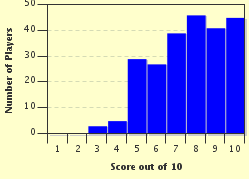Quiz Answer Key and Fun Facts
1. Completed on the orders of William the Conqueror, in 1086, the "Great Survey" of his lands and taxes is known worldwide as "The Domesday Book". What was its original name, by which it was known from the eleventh to the thirteenth centuries?
2. In November 1120, Captain Thomas FitzStephen changed the course of English history when he ran his ship aground and she foundered off the coast of Normandy leaving just two survivors. Which of her aristocratic passengers had been next in line for the English throne before his untimely death?
3. Many people remember King John and the signing of the Magna Carta at Runnymede, but can you remember the name of the controversial Archbishop of Canterbury whose election began the rift between the King, the Pope, and the Barons?
4. A series of battles between Scotland and England started in the late 1200s with the English mostly conquering the Scots by 1304. But in 1314, Robert the Bruce led Scotland to a decisive victory over the English at which location?
5. Another significant year in English history was 1485, when the Plantagenet dynasty finally met its end at which famous battle?
6. The year 1588 was a memorable one for the English with the defeat of the Spanish Armada. The naval battles mainly took place in the English Channel, but where did Spain lose most of its ships?
7. Fuelled by anti-Catholic sentiment, Titus Oates created what became known as the 'Popish Plot' between 1678 and 1681. Which monarch did he claim was the target of a Catholic-conspired assassination?
8. The Acts of Union in 1706 and 1707 were hugely significant in British history, effectively creating the United Kingdom of Great Britain. Which two existing kingdoms did the acts unite?
9. Even though Sir Robert Peel served as Prime Minister twice, perhaps his most important work was during his tenure as Home Secretary. In 1829, Peel was instrumental in setting up which London organisation?
10. UK politics took a decidedly historic turn in 1979, as the Conservatives swept to power once again. What was significant about this particular election?
Source: Author
eburge
This quiz was reviewed by FunTrivia editor
bloomsby before going online.
Any errors found in FunTrivia content are routinely corrected through our feedback system.

